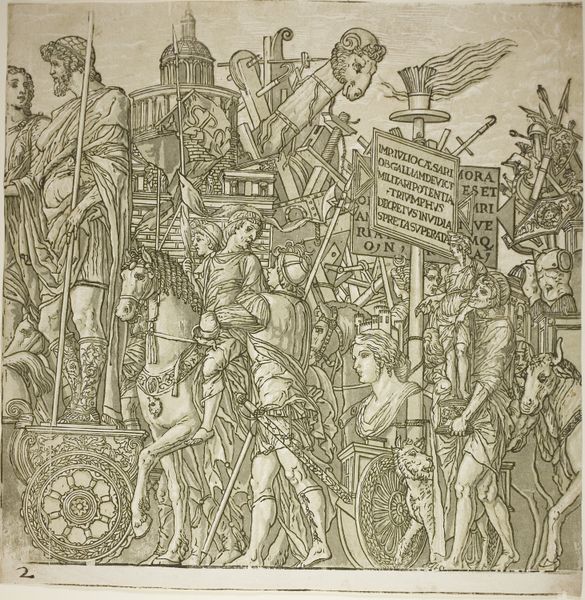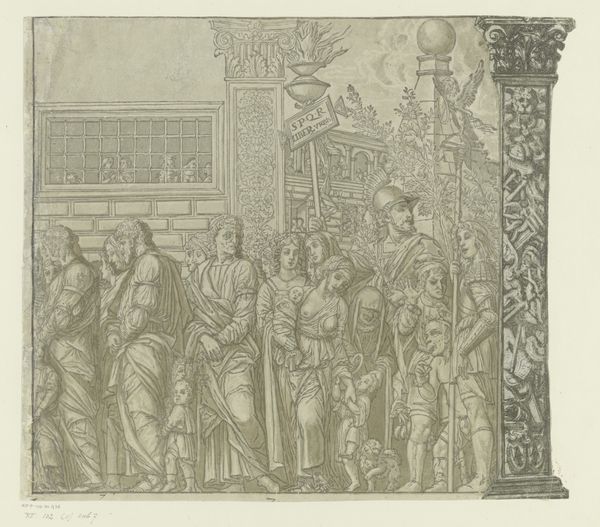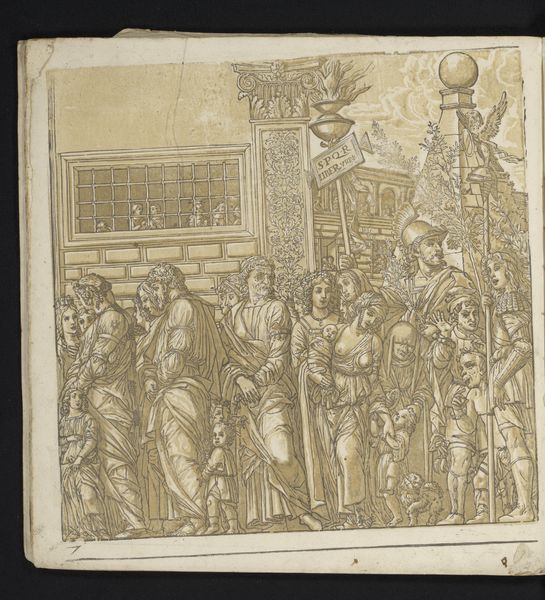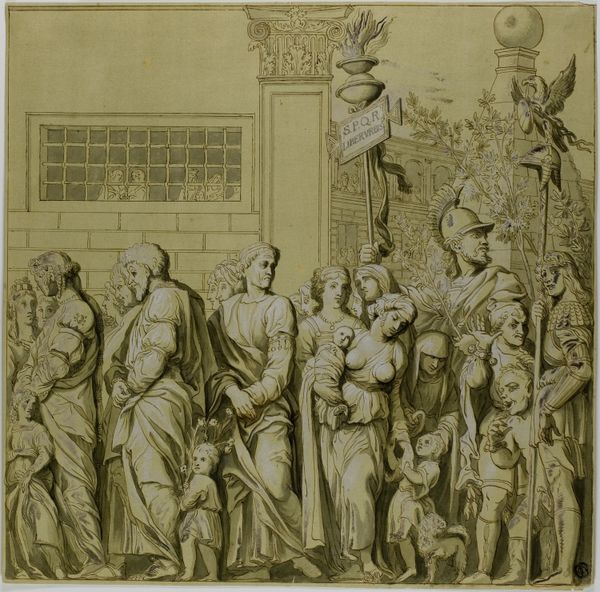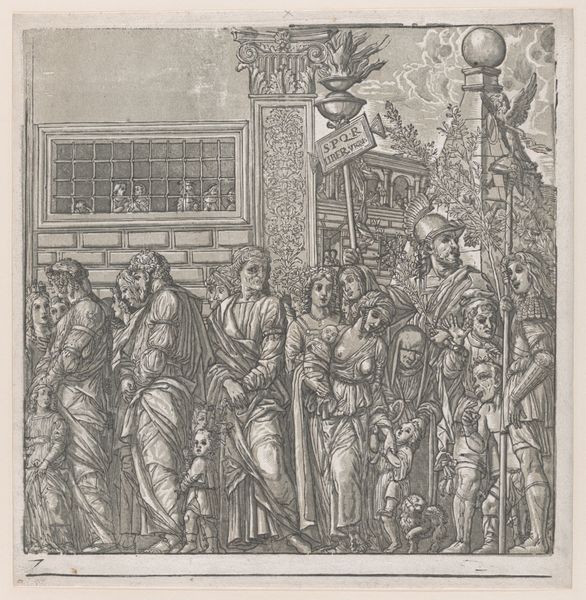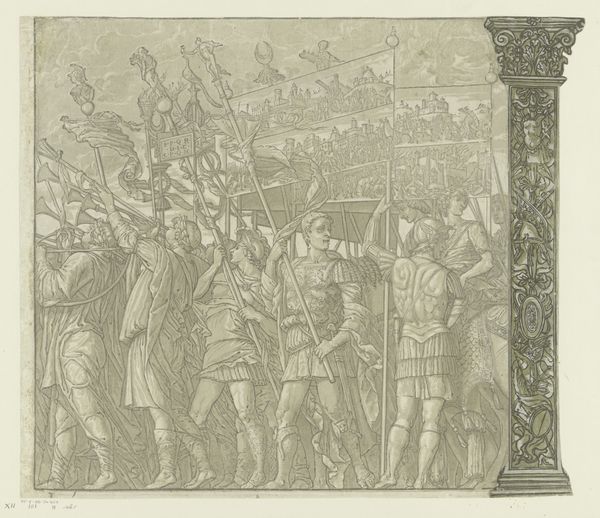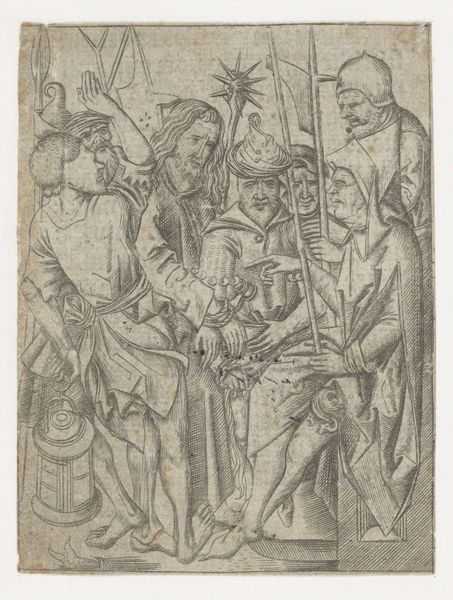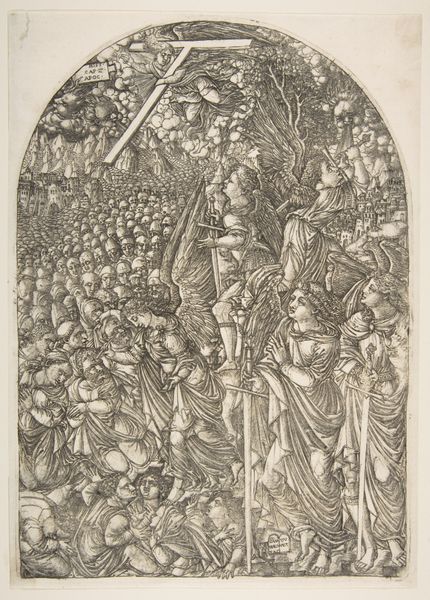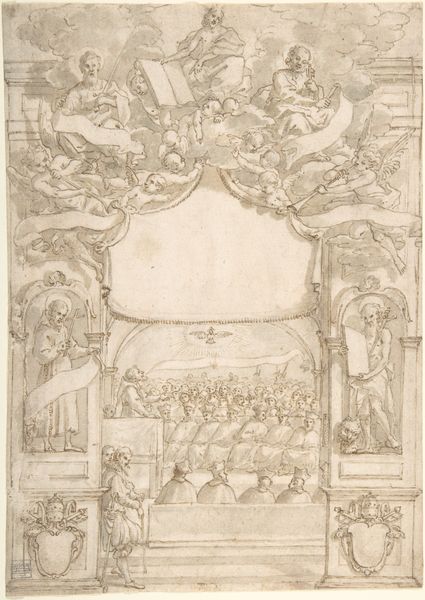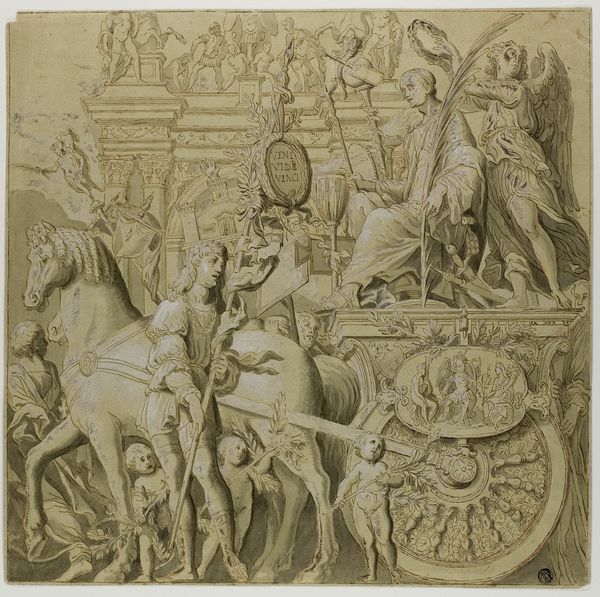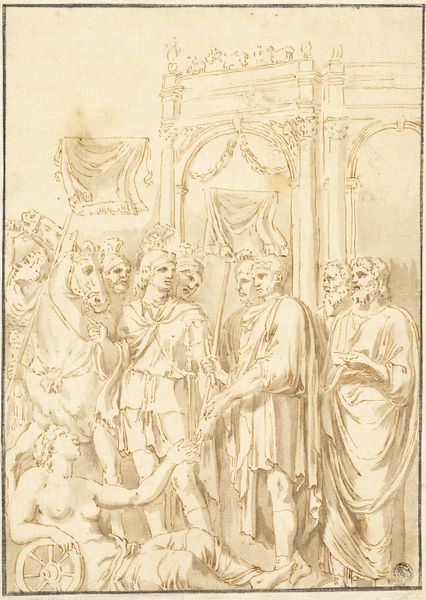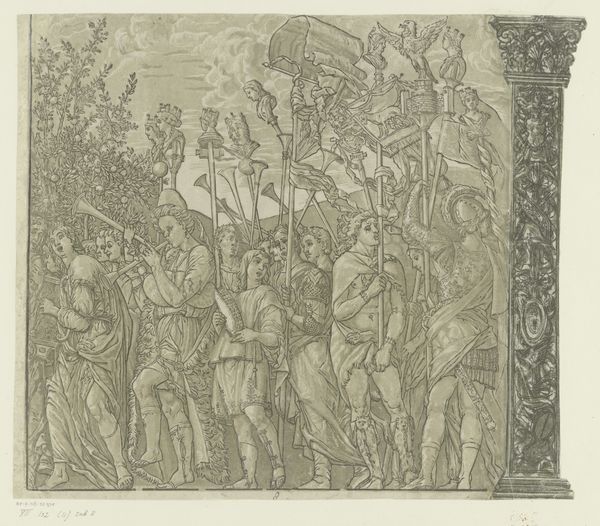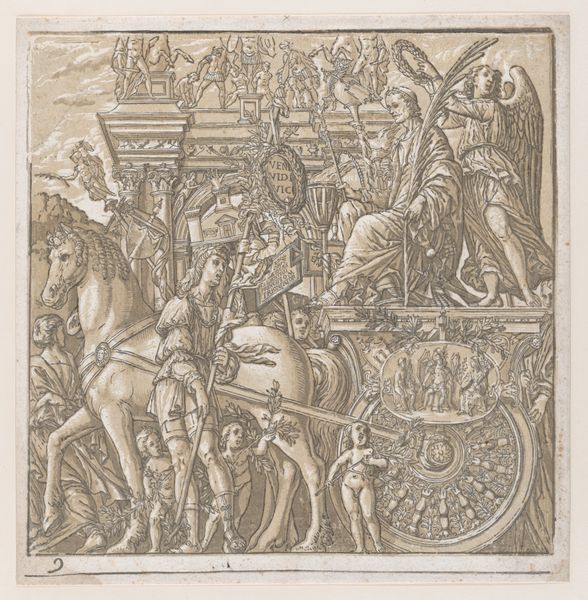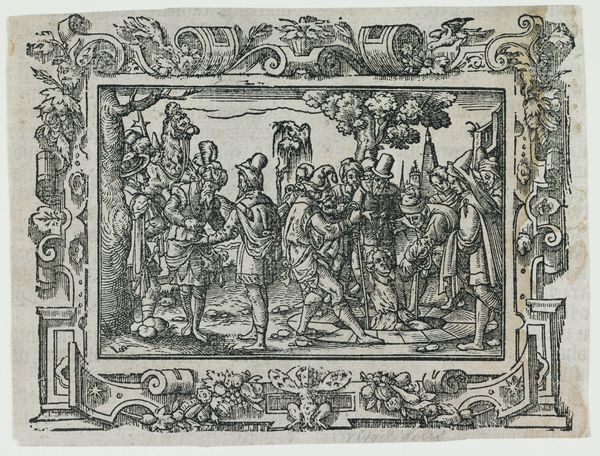
drawing, print, etching, paper
#
drawing
#
narrative-art
# print
#
etching
#
etching
#
mannerism
#
figuration
#
paper
#
history-painting
Dimensions: 385 × 370 mm
Copyright: Public Domain
Editor: Here we have Andrea Andreani’s "Triumph of Caesar," a print from 1599 currently at the Art Institute of Chicago. The scene, etched in tones of tan and brown, teems with figures and intricate details. I’m curious – what does this composition evoke for you? Curator: I see a layering of symbols echoing through time. The very act of depicting Caesar’s triumph in 1599 is a potent statement. What memories or aspirations do you think Andreani wanted to activate in his viewers? Editor: I guess he wanted to evoke a sense of Roman glory and power. The figures are dressed in togas and laurel wreaths. But what's the point of it all? Curator: Indeed. Consider the "SPQR" banner. "Senatus Populusque Romanus" – The Senate and People of Rome. It’s not merely a descriptive label but a reverberating claim to legitimacy. How might the contemporary viewer have interpreted that assertion of authority, especially given the political upheavals of the time? Editor: Perhaps it was meant to be seen as a symbol of order and strength, a contrast to the uncertainty of the period? The composition almost feels staged; they all stand so neatly aligned. Curator: Exactly! The procession becomes a stage for conveying an idea, almost an ideological stance. Think of the architectural details; they are more than mere setting. They are structural elements reminding the viewer of Roman ideals. How does that contrast with the expressions on the figures' faces? Do you notice anything contradictory? Editor: There's an almost weariness on some of the faces, and maybe some sadness, even in this so-called "triumph." Curator: Yes! The visual rhetoric of triumph is undermined by this underlying sense of the human cost. Symbols are never neutral; they absorb the complexities of history and experience. Editor: That really sheds a new light on the piece. The triumphal imagery contrasts powerfully with those subtle, human expressions. Thank you for sharing! Curator: My pleasure! Reflecting on these cultural echoes gives us a glimpse into how societies grapple with power and memory.
Comments
No comments
Be the first to comment and join the conversation on the ultimate creative platform.
